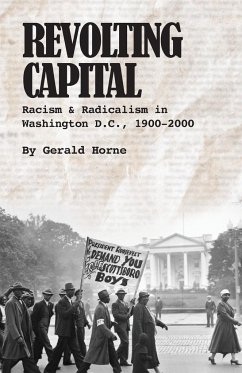There is a fundamental contradiction in U.S. Imperialism: the capital of this empire for decades has had a majority Black population, which-in turn-has created favorable conditions not only for the erosion of the pestilence that is racism but the flourishing of the antidote that is radicalism. In this sweeping history, Gerald Horne traces this phenomenon over a century, in a book which should be understood and studied by all anti-imperialist and progressive forces. This relatively small metropolis also has influenced profoundly its neighbors in Maryland and Virginia, especially in the potent area of labor organizing.
Hinweis: Dieser Artikel kann nur an eine deutsche Lieferadresse ausgeliefert werden.
Hinweis: Dieser Artikel kann nur an eine deutsche Lieferadresse ausgeliefert werden.








